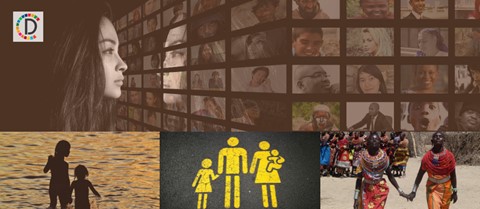Death penalty 'definitely not a solution': Activists, lawyers on how to stop rape incidents

- Country:
- India
As members of parliament demanded stringent punishment for rape convicts including death penalty, lynching, and castration, women rights activists and lawyers argued on Monday it was "definitely not the solution". Delhi-based social activist and human rights campaigner Shabnam Hashmi said mandating death penalty will only "adversely affect" the cause of women.
"Death penalty is definitely not the solution. In fact, it only adversely affects the cause of women. It often leads the accused to finish off any kind of evidence so that there is no proof," she told PTI. She added that in case of rapes within the family, provision of death penalty leads to "pressure on women not to report".
The debate on punishment for rapists have reopened after a 25-year-old veterinarian was gangraped and murdered in Hyderabad last week. Several other such incidents were reported from elsewhere in the country in recent times. Members cutting across party lines condemned the recent spurt in crime against women and demanded stringent laws that punishes the guilty within a fixed time-frame.
Death penalty for rapists, lynching of convicts in public and castration of those convicted were among the demands made in Rajya Sabha on Monday. Kavita Krishnan, the Secretary of the All India Progressive Women's Association (AIPWA), said on Twitter that the solution did not lie in capital punishment but, in "respect for consent".
"There can't be a 'debate' anymore on capital punishment being the solution. It is NOT. Feminists who are on the frontline fighting rape culture daily, are TIRED of having to rehash the same arguments over and over. "Feminists don't oppose death penalty because they are soft-hearted but because it goes AGAINST women's interests and serves patriarchy (sic)," she wrote in a series of tweets.
In 2013, the government had announced that death penalty would be applicable to those convicted of rape resulting in death. According to Supreme Court lawyer Karuna Nundy, demanding death penalty was a "reflex for those who are frustrated" and did not know how to protect women's freedom.
She said sentencing came at the last stage of a criminal case, and "true justice" would happen "before the woman is raped". "Even after the assault, if you don't have an FIR registered, if there is no speedy trial nor conviction of the guilty - then deterrence is low. Governments haven't enabled enough judges to examine these issues, and we are not recruiting police and judiciary on the basis of their constitutional values and competence to protect the freedoms of the disadvantaged groups. The sentencing is only something that comes in the end.
"So, even if it was five years in jail, if we had swift certain sentencing, it would be a major major deterrent," Nundy said. She added that the demands for death penalty, lynching or castration of the convict, "will make no difference" if the accused isn't even scared of being caught.
"The Verma Committee kept the death penalty out of sentencing for rape because they cited hard data they had examined, showing that a decrease in murders accompanied a decrease in death penalties. In our own country it has been demonstrated that death penalty does not reduce violent crimes," she said. Supreme Court lawyer Shilpy Jain said death penalty was a big no, especially for a country like India where the implementation of the law is poor.
She said the ground investigation for crimes is done by the lowest rung officials who are often barely school passouts, and therefore "not academically equipped to deal with law". She added they were "overworked and underpaid", leading to corruption. "That is why many investigations lead to acquittals. We do not rely on forensic evidence," she said.
Hashmi said while fast-track courts for speedy conviction are a necessity, there was also a need for gender sensitisation, both at schools and in homes. "We need to understand why we, as a society, are producing rapists, because nobody is a born rapist.
"Rape is a product of a patriarchal and feudal society...our society perpetuates hatred, especially towards women, through their portrayal and objectification, like in films," Hashmi said.
(This story has not been edited by Devdiscourse staff and is auto-generated from a syndicated feed.)
- READ MORE ON:
- Shabnam Hashmi
- Karuna Nundy
- Delhi
- Kavita Krishnan
- Supreme Court
- Hyderabad
- Rajya Sabha
- India
ALSO READ
Supreme Court Verdict Sparks Turmoil Over India-US Trade Deal
US Supreme Court Ruling Sparks Constitutional Clash in Tariff Dispute
US Supreme Court Ruling Eases Tariff Burden on Indian Exporters
Strengthening Ties: Modi and Lula's Visionary Meeting in New Delhi
Rahul Gandhi Criticizes Modi Over India-US Trade Deal Post-US Supreme Court Ruling










